
Samsung just unveiled its flagship smartphones in the Galaxy S23 series this week, and at first glance you’d be forgiven for thinking they’re not all that different from the Galaxy S22 series. What’s actually new? Let’s break it down.
Refreshed design
And the same colors everywhere
Looking quickly at the Galaxy S23 versus the Galaxy S22, the overall look is pretty similar. With the smaller S23 and S23+, there’s really only one change, and that’s to the rear cameras. Instead of connecting in a small module, the three sensors have independent modules on the back of the phone. It gives Samsung’s lineup a more cohesive overall look.
Plus, the entire Galaxy S23 lineup is now available in the same four main colors. From S23 up to the Ultra, you’ll have the choice of black, green, lavender, or cream. It’s something that Samsung hasn’t offered in years prior, much to the dismay of Ultra buyers who often only had two colors.
Related: Where to pre-order the Galaxy S23, S23+, or S23 Ultra and get the best deal
The Galaxy S23 Ultra is flatter and boxier
Subtle changes make a better, but chonkier phone
While the looks are basically unchanged at a glance on the Galaxy S23 Ultra, you’ll find when comparing it to its predecessor that there’s a significant change in design from the S22 Ultra.
Samsung’s latest top-tier flagship is boxier overall, which makes the phone feel much thicker even though it’s actually basically identical to its predecessor. In the limited time I’ve been using the S23 Ultra, I’ve actually been enjoying this, as the phone feels easier to grip without a case. I’m also a fan of the screen being far less curved this time around. It’s still curved, but not nearly to the same extent. Samsung told us the curved screen was reduced by 30%.
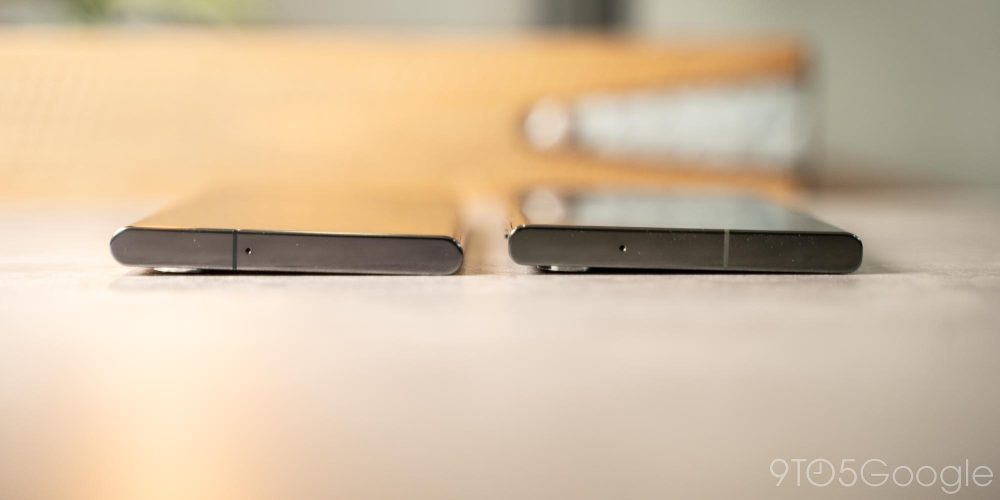
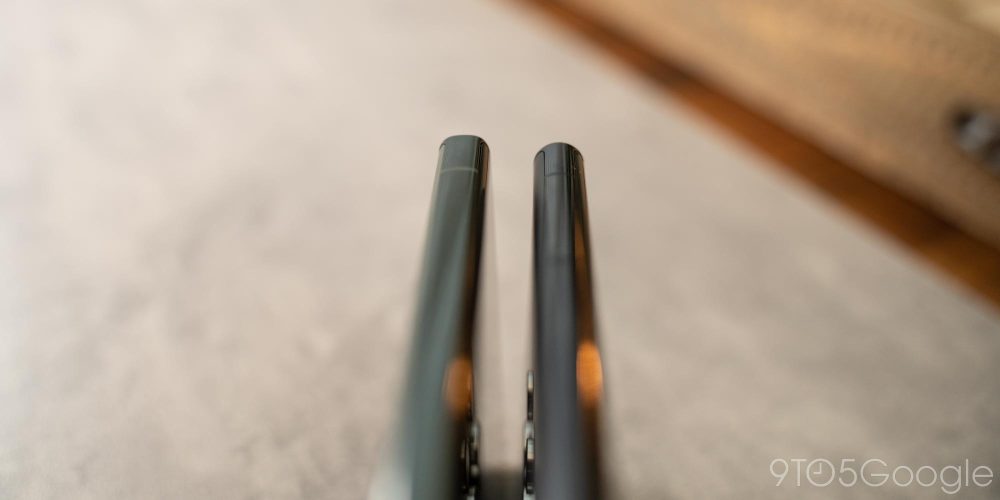
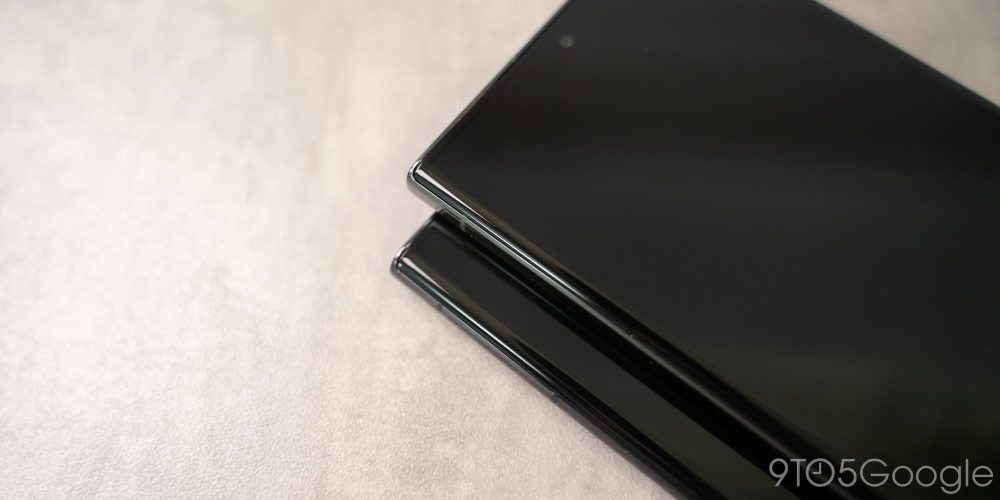
Galaxy S23 and S23+ have bigger batteries
Who doesn’t want better battery life?
If you’re not buying the Galaxy S23 Ultra, you’ll get a perk compared to the prior generation in the form of bigger batteries. Both the S23 and S23+ have 200 mAh bigger batteries, to 3,900 mAh on S23 and 4,700 mAh on S23+.
Related: Galaxy S23, S23+, and S23 Ultra arrive starting at $799 with 200MP camera, 256GB storage in tow
Snapdragon is now a global affair
Exynos is gone, at least for now
The entire Galaxy S23 series is powered by the special Snapdragon 8 Gen 2 for Galaxy, a collaboration between Samsung and Qualcomm that delivers on a faster version of Android’s flagship chip for 2023. But the even better news is that this chip is being used worldwide, with no Exynos version being sold in any regions.
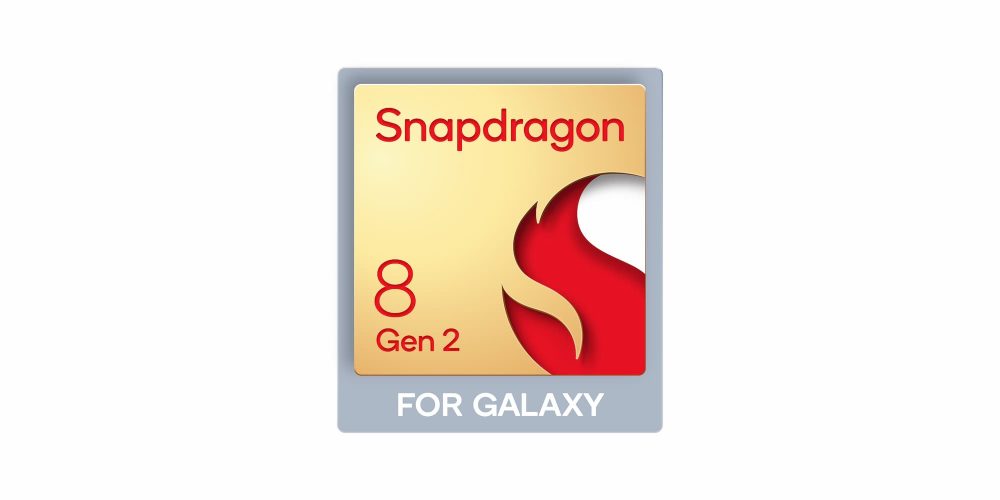
Brighter display on Galaxy S23
One less compromise on the smallest model
Where last year’s base Galaxy S22 shipped with a display that couldn’t get quite as bright as the S22+ and S22 Ultra, the base model this year hits the same figure. 1,750 nits is the peak brightness you’ll find across all Samsung Galaxy S23 devices.
Better low-light photography, even in social apps
Samsung leaned hard on the camera during the launch event for the Galaxy S23 series, especially talking about “Nightography.” Part of that comes from a boost to the camera on the S23 Ultra, with its 200MP camera capable of improved pixel binning which can boost low-light performance.
But beyond that, Samsung also tells us that the new ISP is capable of improving low-light performance even further both in photos and videos using AI. Samsung says these improvements also extend to third-party apps such as Instagram and TikTok.
Galaxy’s improved Night Solution and advanced multi-frame processing mean it’s time to say goodbye to the visual noise often ruins low-light videography. The new S23 line’s AI-powered ISP algorithm also enhances object details and color tone—even on selfie videos. All these features are compatible with Instagram, Snapchat and TikTok. Sharing stunning low-light videos with friends has never been simpler.
Recycled materials and better packaging
In an effort to improve the sustainability of its phones, Samsung says that the Galaxy S23 series makes use of recycled materials in more than one aspect. That includes over 20% of the glass using recycled materials, as well as the box using fully recycled paper and no plastic. Though, in unboxing the phone, we noticed that there is still plastic covering the sides of the S23 Ultra.
The entire lineup is designed with a greater mass and variety of recycled materials, including recycled aluminum, recycled glass and more recycled plastics sourced from discarded fishing nets, water barrels and PET (polyethylene terephthalate) bottles and comes in a zero plastic box made with 100% recycled paper. In collaboration with Corning®, [Galaxy S23] is equipped with Gorilla® Glass Victus® 2 for the front and back. [Galaxy S23] is the first smartphone to incorporate this glass, which offers more durability for long-term use and consists of an average of 22% recycled pre-consumer content.
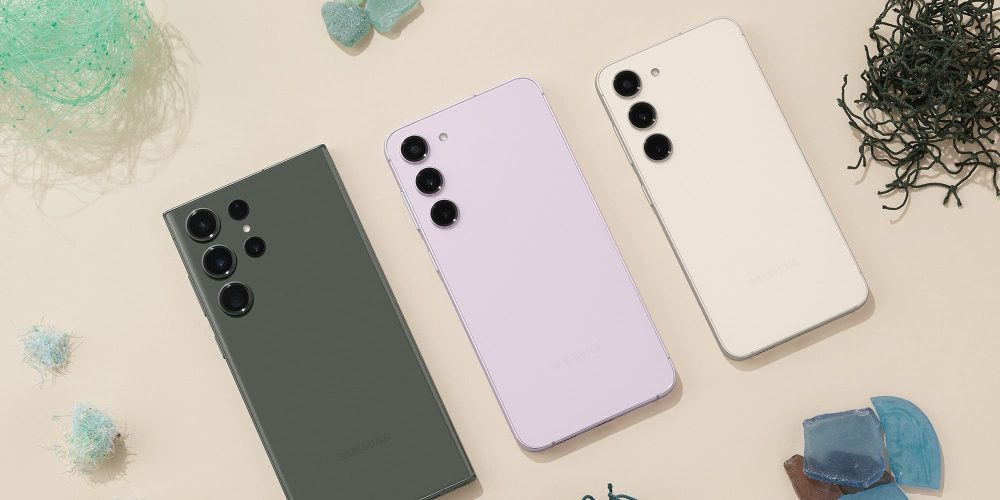
256GB is almost the new normal
Samsung has mostly ditched 128GB
128GB has been the standard for most phones in terms of storage for the past few years, but Samsung is upgrading that on the Galaxy S23 series. The Galaxy S23+ and S23 Ultra both start with 256GB of storage, with no 128GB model available. Only the base Galaxy S23 is available with 128GB. Supposedly, part of the change is because Samsung doesn’t make UFS 4.0 storage modules smaller than 256GB, but Samsung has been unable to confirm that reasoning so far.
Bigger vapor chamber
Better cooling performance
Under the hood of the Galaxy S23 series there’s also a tweak to cooling. The “Vapor Chamber” used to dissipate heat more quickly has apparently greatly expanded, as Ice Universe noted on Twitter. This should lead to much faster and more efficient cooling performance.
Pre-orders for the Samsung Galaxy S23 series are open now. Buyers get a $100 credit with their pre-order, and an additional $50 by clicking our special link here. Samsung is offering trade-in values up to $750. We’ve also broken down carrier deals here so you can get the best value.
Author: Ben Schoon
Source: 9TO5Google



